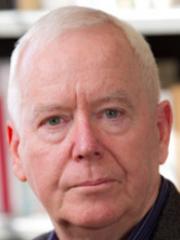Emeritus Professor Ian Hunter

Researcher biography
Professor Ian Hunter is currently pursuing two research themes, one concerns the history of early modern political and philosophical thought, and the other concerns the history of theory in the modern humanities academy.
Ian Hunter is a distinguished international scholar working on the history of early modern political and philosophical thought, and on the emergence of theory in the 1960s humanities academy. His Rival Enlightenments appeared in 2001 and his most recent monograph is The Secularisation of the Confessional State: The Political Thought of Christian Thomasius (Cambridge: Cambridge University Press, 2007). In collaboration with Thomas Ahnert (Edinburgh) and Frank Grunert (Halle), he completed the first English translation of Thomasius's works: Christian Thomasius: Essays on Church, State, and Politics (Liberty Fund, 2007). He has recently edited and introduced two volumes for the German edition of Thomasius's Selected Works.
Recently published articles include 'Kant's Religion and Prussian Religious Policy', Modern Intellectual History, vol. 2, 2005, 1-27; 'The History of Theory', Critical Inquiry, vol. 33, 2006, 78-112; 'The Time of Theory: The Return of Metaphysics to the Anglo-American Humanities Academy', Journal of Postcolonial Studies, vol. 10, 2007, 5-22; and 'A Jus Gentium for America. The Rules of War and the Rule of Law in the Revolutionary United States', Journal of the History of International Law 14, 2012, pp. 173-206. Recent book chapters include 'Natural Law as Political Philosophy', in Desmond Clarke and Catherine Wilson (eds), The Oxford Handbook of Philosophy in Early Modern Europe, Oxford: Oxford University Press, 2011, pp. 475-99; and 'Kant's Political Thought in the Prussian Enlightenment', in Elizabeth Ellis (ed), Kant's Political Theory: Interpretations and Applications, Pittsburg: Penn State Press, 2012, pp. 170-207.
He is currently working on the theme of the persona of the philosopher, and the intellectual history of 1960s humanities theory.
